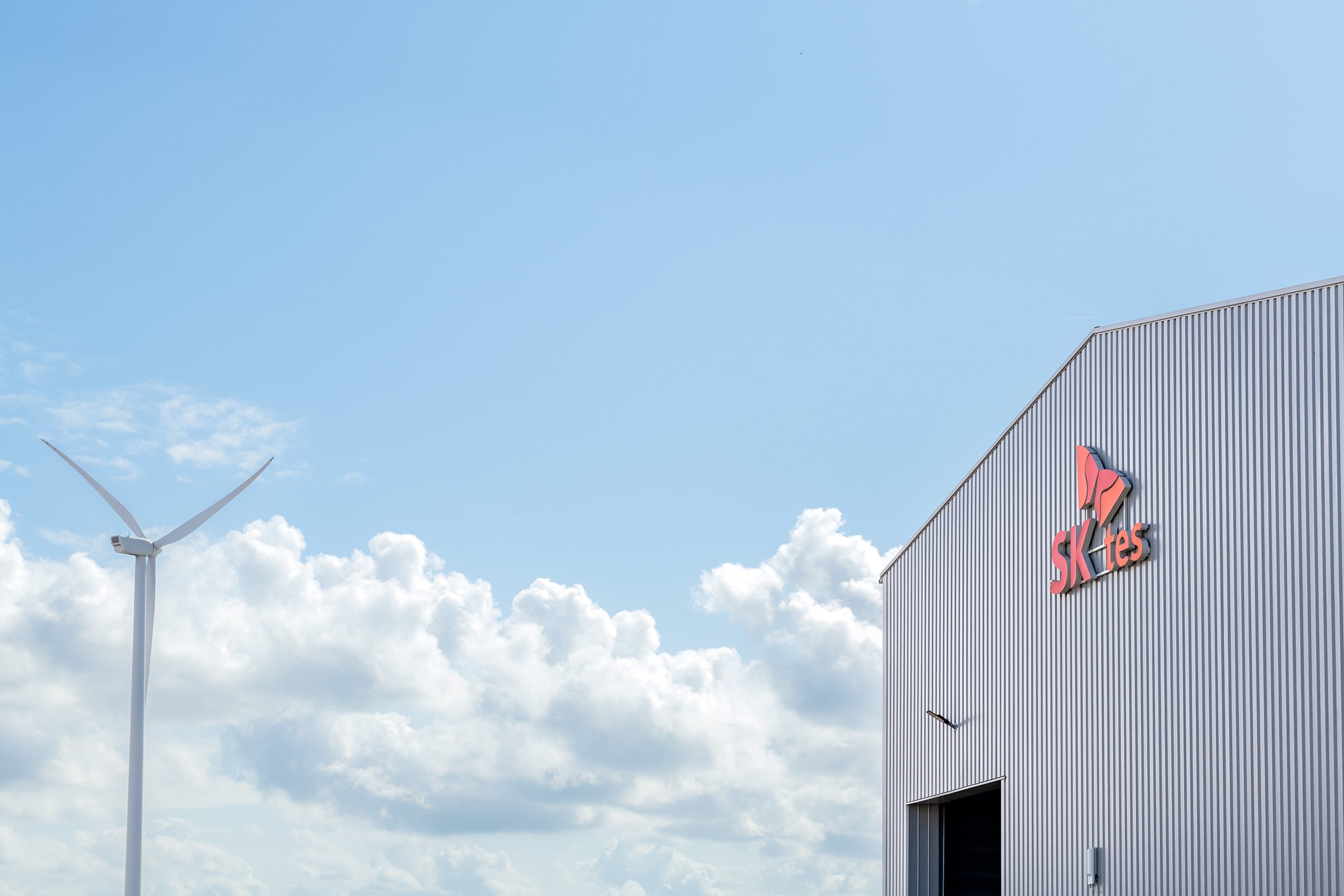Today SK tes, one of the world’s largest providers of sustainable technology lifecycle services, has announced a deal securing the future of a 10,000 square metre (approx. 110,000 sq. feet) recycling facility in the Port of Rotterdam, Europe’s largest seaport.
The facility, strategically located in the port of Rotterdam, has an option to expand to over 40,000 square metres (approx. 430,000 sq. ft). It holds a waste license for lithium battery storage, electric vehicle battery management, and alkaline battery shredding.
The site extension, expected to be fully operational by late 2022, will be the Netherlands' first lithium battery recycling plant, complementing SK tes facilities in Grenoble (France) and Singapore.
The SK tes site in Grenoble pioneered an inert shredding process for lithium batteries and developed key hydrometallurgical patents. This expertise supported the opening of Southeast Asia’s first lithium battery recycling facility in Singapore in March 2021, capable of recycling up to 14 tonnes of lithium batteries daily.
These existing facilities will contribute to the development of the larger-scale Port of Rotterdam site. Combined, the three locations will position SK tes as one of the largest lithium battery recyclers and commodity material producers globally.
This initiative aligns with SK tes’ commitment to improving battery recycling in Europe, supporting the EU’s European Green Deal. It also anticipates the rising demand for lithium batteries, projected to increase 14-fold by 2030.
A December 2020 report from Circular Energy Storage indicated that Europe lacks sufficient lithium battery recycling capacity to meet 2030 waste generation levels. According to the European Commission, the EU may account for 17% of global lithium battery demand by 2030.
Thomas Holberg, Chief Operating Officer at SK tes: “Our vision is to be a global sustainability innovator. The Port of Rotterdam site is crucial to that strategy. Once operational, we will have up to 10,000 tonnes of shredding capacity per year, followed by a hydrometallurgical process recovering nickel, cobalt, and lithium as feedstock for the battery industry.”
The European Commission has proposed modernizing EU battery legislation under the Circular Economy Action Plan, aiming for more sustainable batteries throughout their lifecycle, a key goal of the European Green Deal.
Jean-Christophe Marti, Senior Partner and CEO at Navis Capital Partners: “With this investment, SK tes strengthens its global battery recycling network, addressing lifecycle challenges while closing the loop for our customers.”
Allard Castelein, CEO at the Port of Rotterdam: “We aim for a net-zero CO2 emission port and industry by 2050, promoting circular production processes. The SK tes project is a prime example, potentially becoming Europe's largest facility for recycling electric vehicle batteries.”
Holberg concludes: “SK tes is committed to closing the loop on lithium battery production through reuse and improved material recovery. Our investment in the Port of Rotterdam facility is a significant step toward expanding Europe's battery recycling supply chain.”




